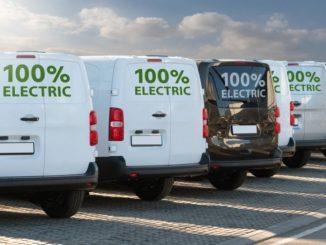
The van sector’s transition to electric variants is still two years behind cars, despite having the same 2030 end of sale date, according to the SMMT.
Amid latest figures showing that the light CV market declined for the seventh month in July, down 20.7% to 18,722 new units registered, the automotive group also warned that the majority of van buyers are citing charging infrastructure as their major concern over whether they think an EV can meet their professional and daily needs.
The SMMT said it was crucial that barriers to infrastructure access are immediately addressed.
It said the decline in the overall market, despite strong order books, was as a result of the ongoing shortages caused by the pandemic.
July saw a fall in registrations across all LCV segments, with 14,782 new vans weighing above 2.5-tonnes up to 3.5-tonnes registered in a month, 11.2% down on 2021.
It said one in three van models available now have a plug and demand was up 21.2% in the month, but the shortage of dedicated electric charge points for the sector was making buyers wary.
Mike Hawes, SMMT chief executive, said: “The LCV market is struggling to recover post-Covid as global supply chain shortages and economic headwinds make the business environment even more challenging for both manufacturers and operators.
“In these circumstances, the continued growth in electric van uptake is admirable as the industry strives to deliver its Net Zero commitments.
“Given the importance of the commercial vehicle sector to Britain’s economy, its environmental ambitions and the need to keep society on the move, the next Prime Minister must look to restore economic confidence and support the sector’s transition to zero emission mobility.”













